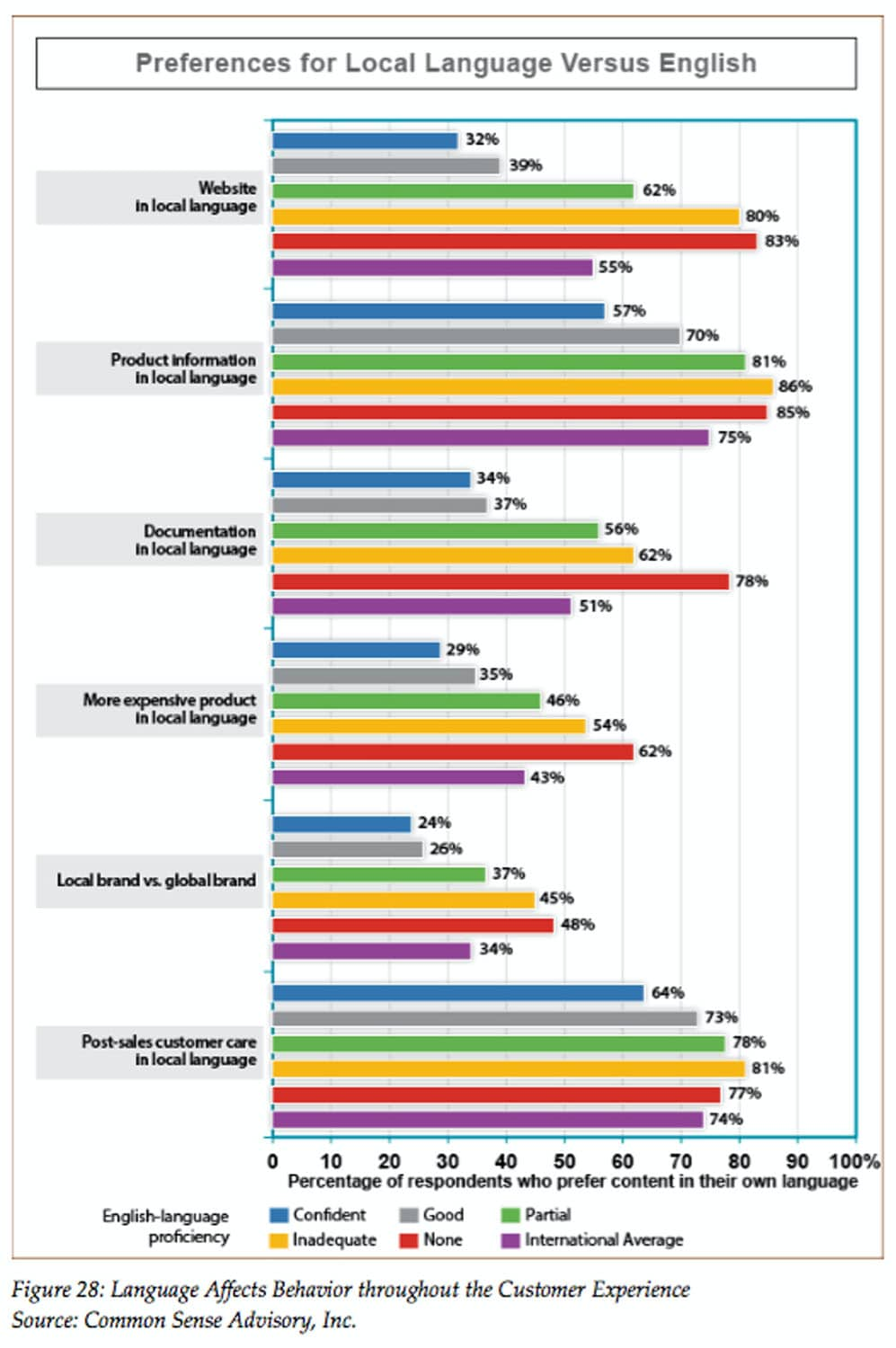Internationalization is a word that’s been on everyone's lips in recent years as one of the strategies, sometimes mission-critical, to help companies survive the financial crisis that hit the global market a decade ago.
Practically all companies strive to penetrate new markets to increase turnover and get access to more customers. A well-designed internationalization strategy makes it possible for businesses to diversify risk and safeguard against future crises, new competitors, and regulation changes in any market.
Companies can tap into millions of inhabitants with each new market it breaks into, effectively multiplying the number of potential customers.
Not to mention that the ease with which companies can leverage social media and breakthrough technologies to reach practically anyone in the world makes the cost of investing in translation insignificant compared to what it was just a few years ago.
Successful companies that do business across borders incorporate translation in their internationalization strategy to maximize results for a range of reasons, from expanding their customer base to increasing revenue. If you are also considering a multilingual campaign and are wondering what benefits you could reap by investing in language services for your company, here are the three reasons why you should make translation and localization part of your marketing plan:
1. Translation triples your results
While many marketing directors believe that having an English version of their website is more than enough to penetrate all markets, according to this study that independent business research and consulting firm Common Sense Advisory conducted in Brazil, China, Egypt, France, Germany, Indonesia, Japan, Russia, Turkey, and Spain, 87% of consumers who can't read English don't buy products or services from English-language websites. Eighty percent of the respondents prefer to shop on websites where information is presented in their language and 60% almost never make a purchase when the information is available exclusively in English.
But the results vary according to country: over 70% of consumers in Japan buy and search for information only on local-language websites. More than half of consumers in other countries like France (61%), Turkey (61%), Germany (58%), and China (54%) also buy exclusively on websites available in their language.
Simply translating your website content and providing a localized experience for users in different markets can drive almost three times more traffic to your website, boosting traffic conversion rates along with all the other indicators of your marketing campaigns.
Who could say no to a 200% increase in a campaign’s results?
2. Because English isn’t for everyone
A common mistake many businesses make is believing that English is the international language par excellence, one that immediately opens the doors to all markets.

The reality is that English ceased being the king of the internet long ago. Even though global internet use was much higher in English-speaking countries in the 1990s, with 80% of users citing English as their mother tongue, the times have changed. Currently, the number of internet users who speak native English represent just over 20% of the total, with internet use growing exponentially in China, Africa and the Middle East over the past decade.
While there was a time when it was thought that all internet users would end up speaking English, or at least consume content in English, the rise of social media and user-created content has reversed that trend. Users create content in their own languages and reach an ever-wider audience, and this is a trend that is only going to accelerate.
The logical choice in today’s global market is to harness the power of translation to create content and campaigns that appeal to international audiences in their own languages.
3. Build trust
Translating a company’s proposals, campaigns and product information makes users feel more comfortable and secure – the fact that a company has made the effort to adapt information to the customer’s language and culture does not go unnoticed. Customer loyalty and brand identification increases when consumers feel like a brand has treated them well.
Another study by Common Sense Advisory found that businesses that translate information to communicate with their customers were 2.67 times more likely to experience an increase in revenue than companies that don’t.

In today’s increasingly competitive business environment, with its focus on brand building, customer loyalty and brand engagement, one of the best ways to unlock new markets is to provide customers with a user experience that has been fully tailored to their language and culture.






